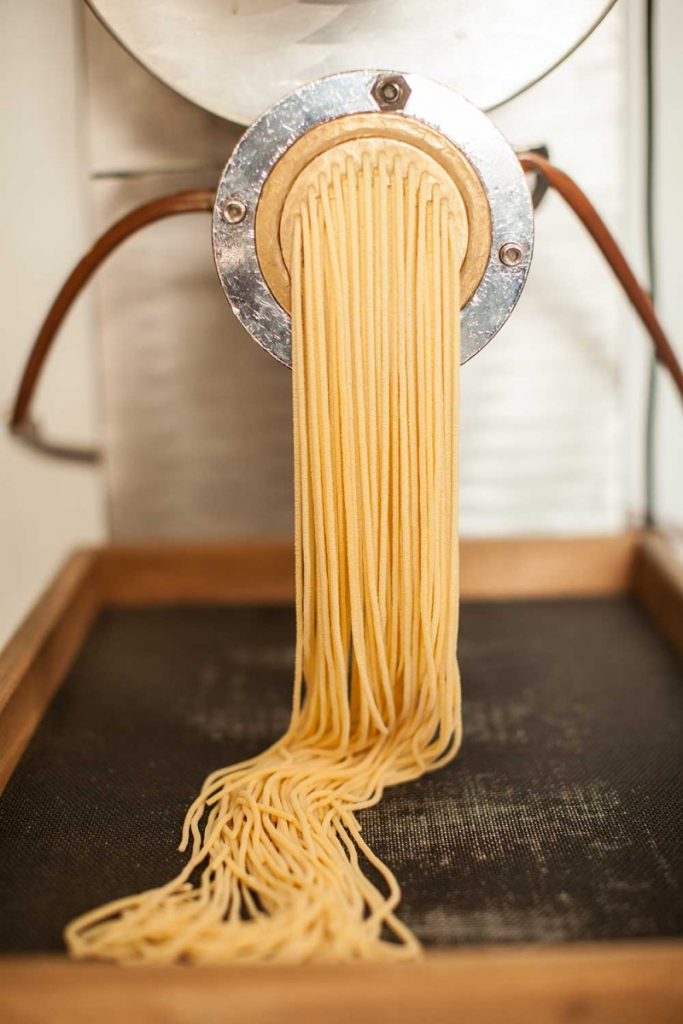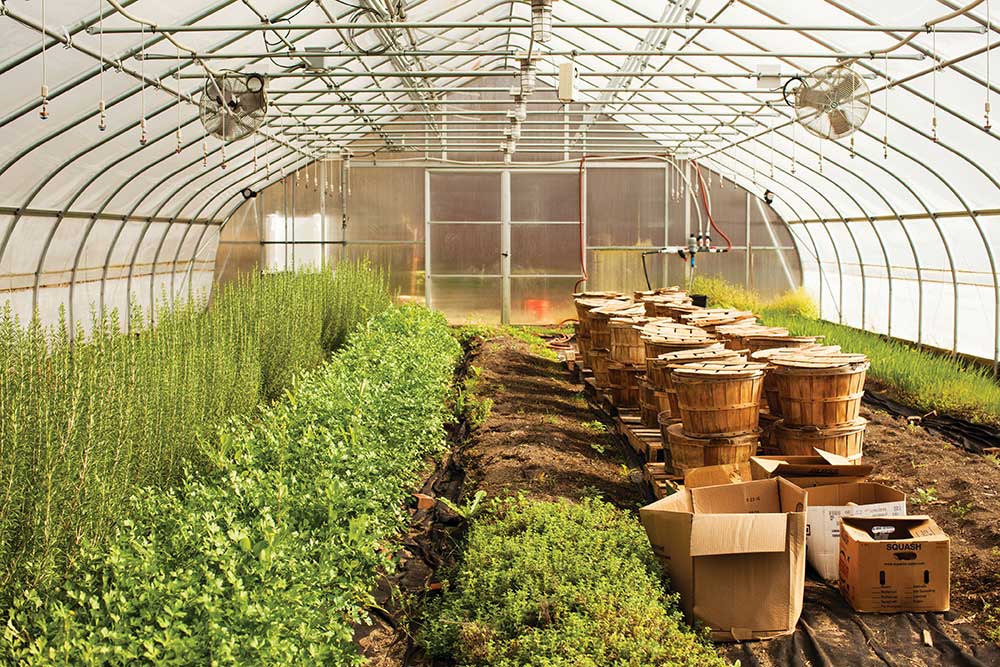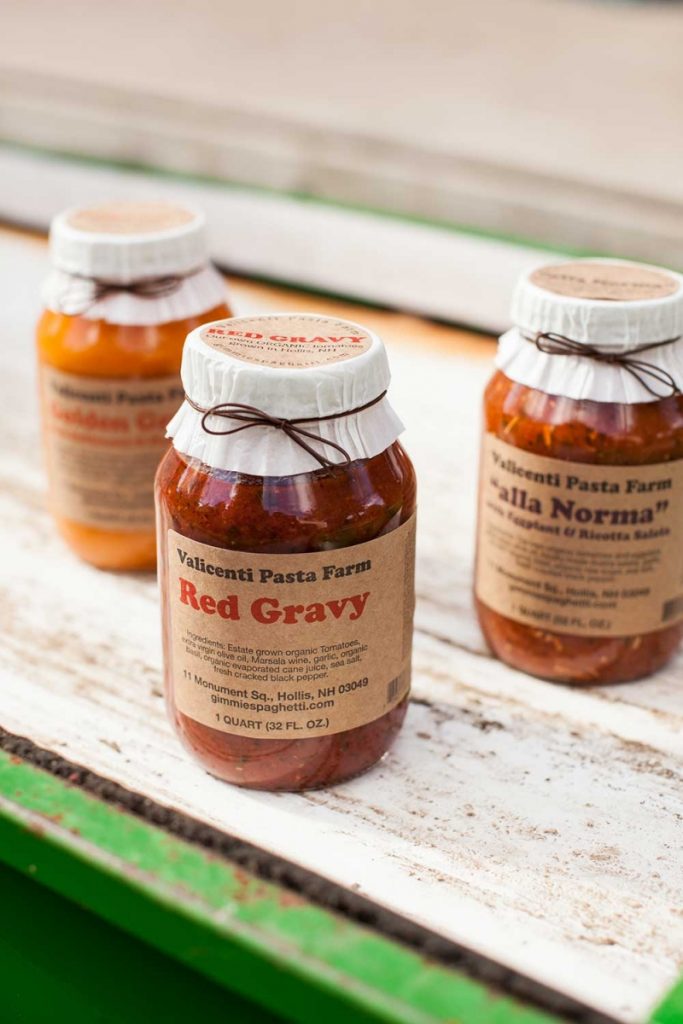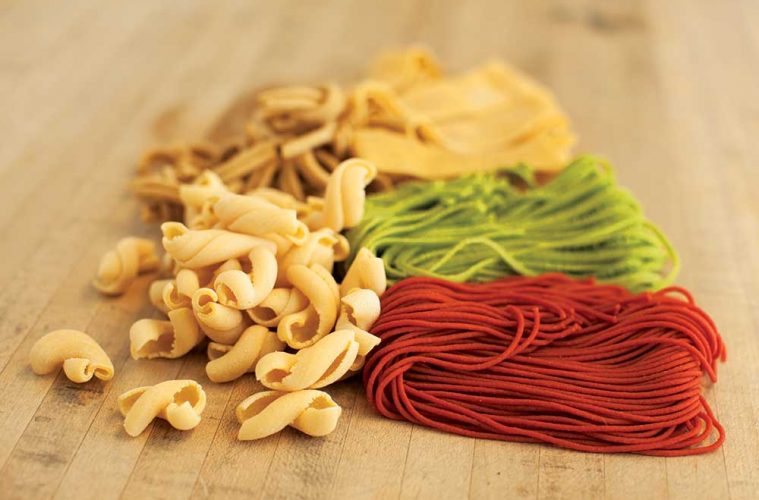Dave Valicenti’s willingness to keep an open mind has led him in directions he never imagined. And that’s a good thing for fresh pasta lovers.
After nearly 15 years cooking in some of New Orleans’ best kitchens, the New Hampshire native moved back home, with the idea of opening his own restaurant. “I’m glad I didn’t,” he remarks. “The economy soured and I took a different route.” Today, he finds himself helming Valicenti Organico with his wife, Michelle. Located on ever-expanding acreage in Hollis, New Hampshire, the pasta company fills a unique culinary niche.
But let’s back up a bit . . .
Valicenti grew up in a garden. For as long as he can remember his family—originally from Italy’s Basilicata region—has cultivated land, producing enough to feed family and friends throughout the growing season. Canning tomatoes, pickling cucumbers, and making sauces, pesto, and jams were matters of fact during Valicenti’s childhood. “I grew up cooking out of the oversized garden that we always had,” says the chef-farmer.
So it seemed natural that he start cultivating his own ingredients. The first year, he recalls setting out to impress his then-girlfriend with his culinary skills. He had a bumper tomato crop on his hands, so sauce seemed obvious. He and Michelle brought the surplus to a local Harvest Fair, where it sold out two weekends in a row. From there, the plan was to sell sauce to establish a nest egg to invest in a commercial kitchen.
But they ran into a glitch: They couldn’t legally sell the 3,500 jars they had made without a commercial kitchen. Thanks to their persistent gumption, they were, in time, able to purchase a defunct apple farm and barn, which they have since turned into the long-sought-after commercial kitchen.

Eventually the couple purchased pasta-making equipment at an auction—and that sent their wheels spinning in yet another direction. Wholesaling sauce turned into selling fresh pasta at farmers’ markets. “We got those pasta machines and started fooling around making funky, nouveau flavors of ravioli,” says Valicenti. On his mother’s prompting, he went with his first batch to the Marblehead and Newburyport markets. “People went bananas! So it quickly became a pasta making business.”
They diversified on the farm front, too, Valicenti describes it as “a patchwork” of fields located in the town’s historic district. Because his parents own the adjacent property, he has been able to slowly acquire more land to cultivate. He also leases neighboring fields. “It’s a very agrarian town,” he notes, “but not very much farming is still here outside of the major fruit farms. So it was relatively easy for me to reclaim that land.”
Gradually he attained the many little plots and fields that now make up his 10 acres, which he has had to learn to tend. “I’m a chef by trade. I’m not a farmer. Having a garden my whole life is a lot different than trying to farm. So we’re learning and luckily the farmers’ markets are forgiving.”

Because the land is so fertile, they have also been lucky in terms of warding off pests and disease. They don’t use pesticides or synthetic fertilizers—just compost. Though his food is not certified organic, Valicenti says: “Our customers know how things are grown—they know what we do. That’s all that matters.”
In addition to all that they grow, they also source ingredients from other farmers. “What we can’t grow, we get from other farms,” explains Valicenti. “Our dairy, meats, eggs, and seafood are all from local farmers. That’s the whole gist of what we are doing. It’s not the easy way out. It’s much more expensive to be sourcing from these like-minded farmers and producers but that network of all of us helping each other out really is the name of the game. And it ends up being such a better product. And we want to make the best we can make . . . It certainly isn’t the cheapest way to go, but it is the best way.”
Their second year saw them at nine farmers’ markets. They cleared a few more plots to increase their growing capacity, and today they can be found at 27 farmers’ markets each week. New Hampshire’s seacoast and the North Shore are their largest areas of distribution. Of the Newburyport, Cape Ann, Beverly, and Salem markets Valicenti says, “We have a good presence there.”
It is clear that he really enjoys the freedom of selling to market-goers. “There’s a limit on what you can do selling wholesale,” he explains. “With farmers’ markets, you can get out there with some crazy flavors—there’s so much flexibility in terms of [working with] crops that come in or having a limited amount of something—there’s no obligation to have the same product year-round. It fits in very well with what we are doing . . . it literally is farm to table.”
Of course, they still make sauces. This year alone, they harvested 175,000 pounds of tomatoes from which they made their three flavors: tomato basil, roasted eggplant, and butternut squash. Included in the ingredients list were nearly 10,000 eggplants, hundreds of bushels of beets, carrots, and sweet potatoes, and rows and rows of peppers, leafy greens, and herbs.

Asked to talk about some of their more popular pasta flavors, Valicenti becomes animated. “Pasta or ravioli?” he asks, making the distinction. The pasta is made primarily with semolina wheat (some of which is sourced from Essex’s Alprilla Farm), though they do sometimes use spelt, farrow, and buckwheat. They also have a renowned gluten-free pasta that took a long time to develop. They flavor the pasta with fresh herbs and juiced vegetables. One of their most prized pastas is made with juiced garlic scapes. As for ravioli, wild truffle mushroom is a favorite. The chef’s artistry is evident in his flavor combinations, which include brown butter and sage roasted sweet potato; roasted eggplant with fresh basil and mozzarella (from Amesbury’s Wolf Meadow Farms); maple-roasted pumpkin with local brie; and pear, prosciutto, and gorgonzola.
Valicenti thinks back to his days spent in an old-school French Creole restaurant as well as the upscale Martinique Bistro, recognizing the value of what he learned inside those kitchens. But it is the chef-owner of the former Ristorante Marino whom he credits with shaping his approach. “Les Marino was the patriarch and visionary of Ristorante Marino in North Cambridge. He was very committed to health and wellness, and owned a farm on which he grew all of his own food—long before the farm-to-table movement. I appreciated their concept of farming the organic ingredients used in the restaurant, much like an agriturismo location in Italy. The way they did things was so inspiring.”
From New Orleans kitchens to New Hampshire farm fields —it is lucky for us David Valicenti decided to follow a pasta path.
Valicenti Organico
11 Monument Square
Hollis, New Hampshire
603-459-3627

